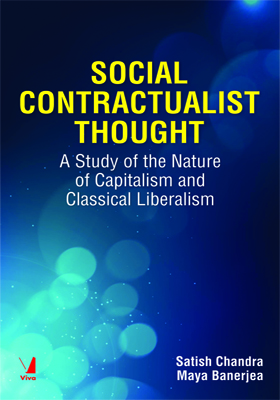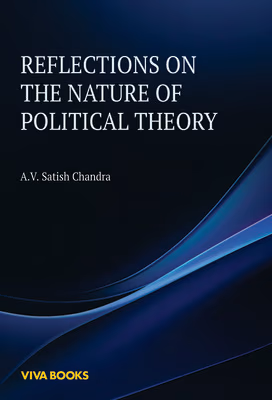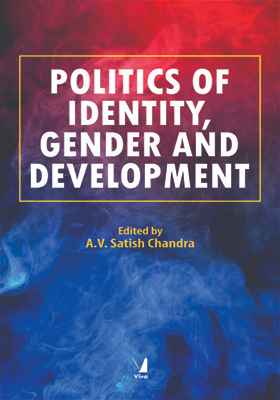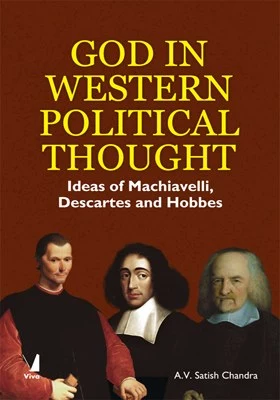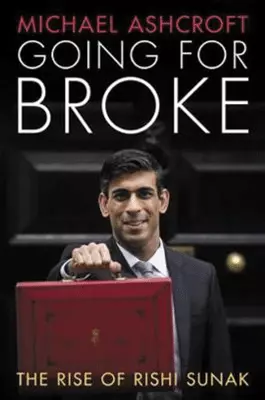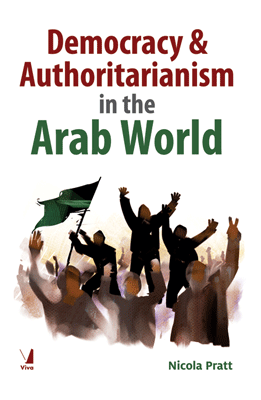Social Contractualist Thought
Social Contractualist Thought
A Study of the Nature of Capitalism and Classical Liberalism
₹715.50 ₹795.00 Save: ₹79.50 (10%)
Go to cartISBN: 9789393329516
Bind: Hardback
Year: 2022
Pages: 152
Size: 6 x 9 Inch
Publisher: Viva Books Originals
Sales Territory: Worldwide
Description:
The idea of the State has been a subject for serious scholarship since ancient times. Over the ages, the State had to battle with other institutions like the all pervading Christian Church to establish its precedence and priority. The State was viewed differently in the medieval era, and in that of the Renaissance and the Reformation.
Historical specificities seem to have been responsible for philosophers viewing the State differently at different periods. Similarly, historical specificity was responsible again for the birth of a new dimension to theories of the State – the Social Contract.
Usually, the Theory of Social Contract is taught as one of the theories about the origin of the State. While this is true, it does not give meaning to the full span of what Social Contractualism accomplished in the Western world. Often, the economic aspects and market dynamics that were espoused by the Social Contractualists tend to be overlooked, thereby presenting a partial and lopsided picture of the true meaning of the Social Contract. The Social Contract has to be linked to the rise of Capitalism in the aftermath of the fading away of feudalism in Europe. Liberalism, especially of the Lockean variety, is intrinsically linked to not just politics but to economics as well. This book explores the deep connections that exist between Capitalism, Liberalism and Individualism, and paints a complete picture of what the Theory of Social Contract is and highlights the contribution of those thinkers who took forward this theory.
Target Audience:
People interested in political science and political thought.
Contents:
Introduction
Chapter One. The Idea of the State: Ancient and Medieval (A Brief Outline)
Chapter Two. Ideas in Context: The Origin and Development of Contractual Culture
Chapter Three. From Erratic Movement to Contractual Movement
Chapter Four. Authoritative Allocation of Movement 50
Chapter Five. The Emergence of Capitalism and the Rise of the Liberal State
Chapter Six. Romanticism and Rousseau
Chapter Seven. The General Will and the Nature of the State
Bibliography
About the Authors:
A.V. Satish Chandra, Ph.D., SEFM, is a professor in the Department of Political Science at Osmania University. He did his Ph.D. from Osmania University, Hyderabad, M.Phil. from the University of Hyderabad and M.A. from JNU, New Delhi, in political science. He has been teaching in Osmania University from the year 1990 and has nearly 31 years of experience. He has been the recipient of various visiting fellowships to the USA, the TÜB?TAK Fellowship of Turkey and an alumnus of the US State Department. He has been awarded with Dr. A.P.J. Abdul Kalam Life Time Achievement National Award in Teaching, Research and Publications. He is recognized as a mentor by the UGC and the Ministry of Education and has been certified for the same. Dr Satish Chandra is also an International Eminent Fellow Member of the Scholars Academic and Scientific Society (SAS). Dr Chandra has published five books: Federalism and Decentralization in India for Better Governance, From Centralized Government to Decentralized Governance, Indian Politics in the Twenty First Century, Politics of Identity, Gender and Development and God in Western Political Thought (Viva Books).
Maya Banerjea has an M.A. & M. Phil. in Political Science from the University of Hyderabad, and an additional M.A. in Counselling Psychology, with over 30 years’ experience of teaching Political Science at the college level. She has been an active researcher for more than three decades. She is also a certifed Career Guidance Counselor. Apart from being an academician, she has also been a product training specialist in Google India (Hyderabad) for 5 years before returning to academics.
